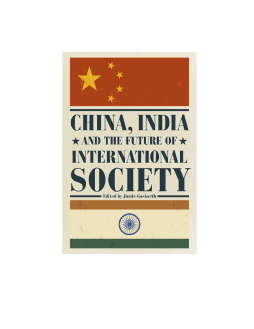
Additional Information
Book Details
Abstract
China and India have huge potential to exert global influence due to their geography, population size and material resources. Now their spectacular economic growth has led many commentators to predict a shift in power from West to East and the dawn of an “Asian century” based on Asian values. But what are these values? Does economic power neatly translate into political power? Will China and India wish to challenge the existing ethical framework of international society?
This volume argues that it is vital to understand how China and India view international society in order to anticipate their impact as they achieve ascendancy. It explores the evolution of these states’ attitudes towards concepts such as sovereignty, international society, power transitions, normative power, and ethical trends, and addresses how they have sought to promote their own normative identities and policy agenda thus far. Unpicking common assumptions about these rising powers, this book engages in a systematic consideration of the ethical attitudes of China and India in the national context and goes on to examine how those translate into their interactions with international society.
There is no doubt that China and India have 'risen'; the question is how they will conduct themselves among the other great powers they are joining. This book is the only game in town to systematically address this question. Those who doubt that there are expectations of great power conduct will be enlightened, and the soothsayers of doom likely to be confounded, by their findings.
Cornelia Navari, Visiting Professor, University of Buckingham
Jamie Gaskarth is associate professor (senior lecturer) in international relations at the University of Plymouth, UK. He has published four books on foreign policy and global governance as well as writing articles for a number of major international journals including Review of International Studies, International Affairs, European Journal of International Relations and Foreign Policy Analysis. He was a Visiting Scholar at Berkeley, in 2011 and is the convenor of an ESRC seminar series on "The rising powers and international society."
This volume offers an insightful comparative analysis of the rise of China and India beyond the realist and the liberal paradigms. It is a valuable contribution to the existing English School literature on the emerging powers and the future of global international society in the putative Asian century.
Yongjin Zhang, Professor of International Politics, University of Bristol
An outstanding and timely collection exploring the multifaceted nature of China's and India's rise and their likely impact on international society. Leading specialists stress the key similarities and differences between the two countries and the roles both of internal forces and external influences in shaping their foreign policies. An important book for scholars and general readers alike.
Yale Ferguson, Professorial Fellow, Division of Global Affairs, Rutgers University
This volume provides a significant empirical contribution to the literature on international society including an excellent discussion about the role of China and India in this field. It should be read by anyone interested in the relationship between great powers and international order, in general, and the work of the English School of International Relations, in particular.
Yannis A. Stivachtis, Chair of the English School Section, International Studies Association; Virginia Tech
China, India and the Future of International Security . . . provides a thought-provoking compilation assessing the impact of China and India's rise in the East and this impact on international security around the world.
